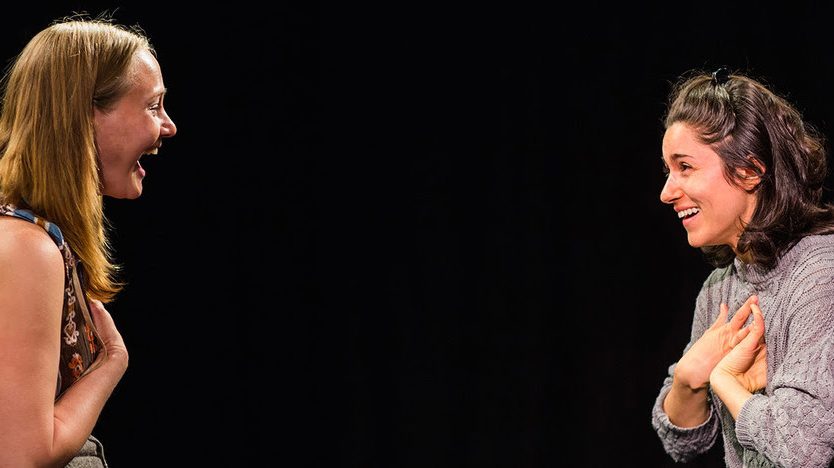Liturgy: “Acting Christian”
“In the end, it comes down to this, you in a room with your play, duking it out with yourself and with God.”

What is the King’s Liturgy? King’s Liturgy defines our experience together as a Christian community. It outlines the rhythms we celebrate with the Church at large: Scripture readings, Sabbath habits, and celebration of Holy Days and historical events.
This Week’s Lectionary Readings
Psalm 45: 1-2, 6-9
Song of Solomon 2:8-13
James 1:17-27
Mark 7:1-8, 14-15, 21-23
This week’s liturgy is contributed by Chris Cragin-Day, associate professor of English and theater:
The Meisner technique is a tool actors use to teach themselves to listen—to take in what another person says, acknowledge it, and respond truthfully. This is the most foundational skill for an actor. Truth is always the goal—truth about the human experience. This skill takes practice, and it’s hard to teach, but you can tell when it’s happening and when it’s not. Acting teachers can tell; good actors can tell. You get better at it by developing courage, self-awareness, and honesty.
James tells us that Christians are to be “quick to hear, slow to speak, slow to anger.” We are to rid ourselves of “all moral filth and evil, [to] humbly receive the implanted word, which is able to save [us].” The words “humbly receive” suggest a pause, an adjustment, an intentional moment of open and active listening, and a willingness to accept what comes. James continues: “But be doers of the word and not hearers only, deceiving yourselves. Because if anyone is a hearer of the word and not a doer, he is like a man looking at his own face in a mirror. For he looks at himself, goes away, and immediately forgets what kind of man he was.” How can somebody look at herself and then walk away and forget who she is? I do this all the time, and it’s usually because I’m afraid of the truth. It’s a defense mechanism that numbs the pain of my own brokenness.
I once had the privilege of discussing the playwriting process with Pulitzer Prize winner Susan Lori-Parks. She said many things that I’ll never forget. One was: “in the end, it comes down to this, you in a room with your play, duking it out with yourself and with God.” Exactly.
Artists who look at themselves in a mirror and then make art that lies about who they are make bad art. Christians who look at themselves in a mirror and then live in a way that lies about who they are make bad…Christians? (You get what I mean.)
But I’ve left out something important. The Word. I’m not an expert on biblical interpretation, but it seems to me that, in this text, the Word is the mirror—the thing that reveals truth. It allows us to see ourselves clearly, to know who we are. If this is true, then Christian actors have a secret weapon, something that gives them deeper understanding of what it means to be human, which is, according to Aristotle, the point of theater in the first place.
Actor A: You are a Christian.
Actor B: I am a Christian.
Actor A: You are a Christian.
Actor B: I am a Christian.
This is how the Christian Meisner exercise would go. It would repeat over and over until the truth of it emerged from that most primal part of both partners, and they would sit in silence, in shared acknowledgement, and then respond accordingly. I wonder if this is the kind of interaction James wants us to have with the Word. “If anyone thinks [she] is religious without controlling [her] tongue, then [her] religion is useless and [she] deceives herself.” Don’t talk so much, Chris. Listen. Look bravely at the Word and yourself. It will make you a better writer, actor, teacher, wife, mother, friend, Christian. Listen. Acknowledge. Respond. Listen. Acknowledge. Respond. Make James and Meisner proud.




